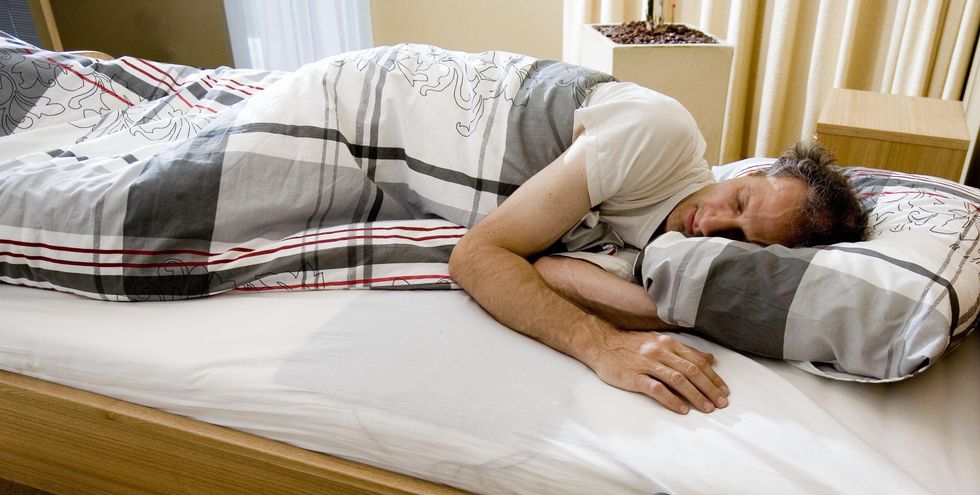Health warning for men who wake up in the night after study finds alarming link to cancer
Men who wake up for at least half an hour during the night are at a 20 percent higher risk of prostate cancer
Getty Images
Men who wake up for at least half an hour during the night are at a 20 percent higher risk of prostate cancer
Men who regularly wake up for 30 minutes or more during the night are 20 percent more likely to be diagnosed with prostate cancer, according to a new study
Waking up during the night is a common complaint that usually has benign causes.
However, this might not be the case for a subset of the male population as a new study has found men who wake up for at least half an hour during the night are at a 20 percent higher risk of prostate cancer.
In the UK, about one in eight men will get prostate cancer in their lifetime.
Symptoms of prostate cancer can include needing to pee more frequently and blood in urine or semen.
The three main risk factors (age, skin colour and family history) cannot be changed but researchers have also explored the link to sleep.

Men who sleep well are at a lower risk of advanced prostate cancer
PAPrevious research has suggested men who sleep well are at a lower risk of advanced prostate cancer.
The latest study, published in the Journal of the National Cancer Institute, has found the inverse to be true.
Researchers recruited 30,000 British men and instructed them to wear a watch monitor to measure any potential sleep disruption.
At the start of the study, none of the participants reported having prostate cancer.
But in the post-study follow-up period, men who had at least 30 minutes of wakefulness at night were 15-20 percent more likely to develop prostate tumours.
The link is not surprising, given what we know about the risks associated with sleep loss.
The cumulative effects of sleep loss and sleep disorders have been associated with a wide range of devastating health consequences, such as type 2 diabetes, hypertension and some cancers.
How much sleep should I be getting?
There's no hard and fast rule as their are many factors that influence how much sleep an individual needs.
According to UK health guidelines, a healthy adult usually needs around seven to nine hours of sleep.
However, age, health and personal circumstances affect how much sleep we need, plus some people naturally sleep more than others.
Teenagers, children and babies need more sleep because they are still growing, but that varies, too, with a newborn sleeping anywhere between eight to 16 hours.
Signs or symptoms of sleep problems include:
Finding it difficult to fall asleep
Lying awake for long periods at night
Waking up several times during the night
Waking up early and be unable to get back to sleep
Feeling down or have a lower mood
Having difficulty concentrating
Being more irritable than usual